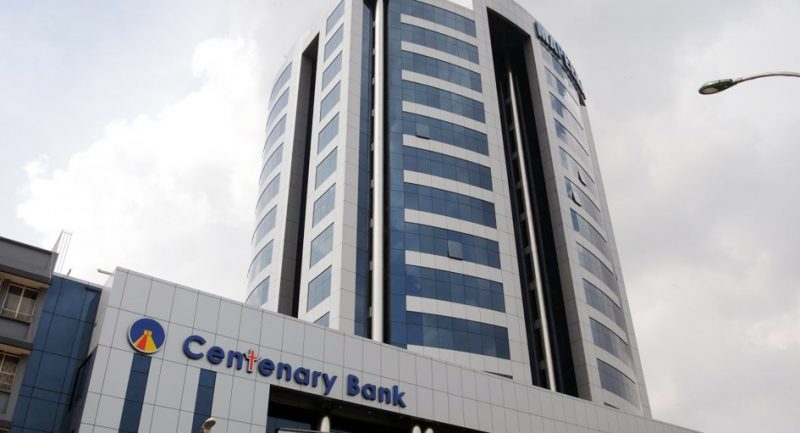KAMPALA – Centenary Bank had its gross profit rise by 11.4 percent to Shs 321.2 billion in the year ended December 31, 2022, from Shs 288.5bln posted in 2021, the bank’s managing director Fabian Kasi says in the financial statement published in the media.
The bank attributes the growth in gross profit to the increase in loans and advances, as well as investment in money markets.
According to the financial statement, the bank’s total assets in the year under review grew by 20.3 percent to Shs 5.7 trillion from Shs 4.8trn in 2021, mainly attributed to a significant increase in customers’ deposits.
Customers’ deposits closed at 3.9trn in 2022 compared to 3.2trn in 2021 recording 22 percent growth. “The increase in in deposits was largely due to the increased investment in technology like the mobile banking and agent banking platforms the conveniently serve customers,” Kasi says in the financial statement.
Meanwhile, loans closed at Shs 2.8trn in 2022 from Shs 2.2trn in 2021 recording a 25.4 percent growth spurred by customers’ demand for investment cash.
The bank had its Non-performing loans decline to 100bln in 2022 from Shs 121.6bln registered in 2021. “The ratio of NPL moved to 3.40 percent in 2022, compared to 5.5.15 percent in 2021.
“This was due to the government’s decision to fully open the economy in quarter one of 2022 that jump started most of the economic activities which were previously affected by Covid-19 and improvement in closer loan monitoring methods by our credit field staff.”
Meanwhile, the bad loans written off by the bank shot up to Shs 36.3bln in 2022 from Shs 23.4bln in 2021.
Cash and balances with Bank of Uganda amounted to Shs 792.9bln in 2022 compared to Shs 679.2bln in 2021, showing the bank is well capitalised.
Commenting on the financial performance of the bank, Kasi said: “Our Bank recorded a substantial growth in 2022 especially in profits, deposits, cross loans, and total assets amidst challenges in the economy.” Centenary Bank recently launched an affiliate in Malawi, promising to expand to other jurisdictions in the future.
Housing Finance Bank and Post Bank disagree with Auditor General on alleged undercapitalisation
In the latest report, the Audit General, John Muwanga says Post Bank and Housing Finance Bank risk falling short of minimum capital requirement of Shs 120bln. However, the said banks disagree with his assessment, saying their financial books show otherwise.
Muwanga in his report suggests that government bails out the banks since it owns considerable shares in them.
“Two of the financial institutions [Housing Finance Bank and Post Bank] required additional funding of capital totalling to Shs 51.8b by the year ending December 31, 2022, which is yet to be done. In the case of Post Bank, there was a need for some additional investment of Shs 2.2b for it to be complaint as of December, 2022,” Muwanga says in his report.
According to the Financial Institutions [Revision of Minimum Capital Requirements] Instrument 2022, a person proposing to transact in the financial institution business in the capacity of a bank should have a minimum paid-up capital of not less than Shs 120bln.
The instrument further provides that as of June 30, 2024, a person proposing to transact a financial institution business in the capacity of a bank shall have a minimum paid-up capital of not less than Shs 150bln.Banks like Standard Chartered Bank Uganda say they already have the Shs 150bln as required by the Bank of Uganda, which regulates the banking industry.
However, the managing director of Housing Finance Bank, Michael Mugabi, said the bank in the year ending December 31, 2021 made a net profit of Shs 40.9bln as it registered a growth of Shs 817.9bln. Government has majority shares in the bank.
“We registered growth in net loans and advances of Shs 674.3bln in 2021. Our asset base has also increased to Shs 1.3trn in 2021, Mugabi was quoted by the local media as saying, even though he did not disclose the figures for the year ended December 31, 2022.
Meanwhile, Post Bank where government has 100 percent shareholding, posted an impressive growth in the year ending December 31, 2022. According to its managing director Julius Kakeeto, its total income increased to about Shs 160bln from Shs 144.bln in 2021, meaning it would not require them to seek government bail out as suggested by the Auditor General, with government resolving to capitalise retained earnings of the Shs 19bln as of December 31, 2022.
https://thecooperator.news/centenary-bank-to-acquire-malawian-lender/
Buy your copy of thecooperator magazine from one of our country-wide vending points or an e-copy on emag.thecooperator.news
